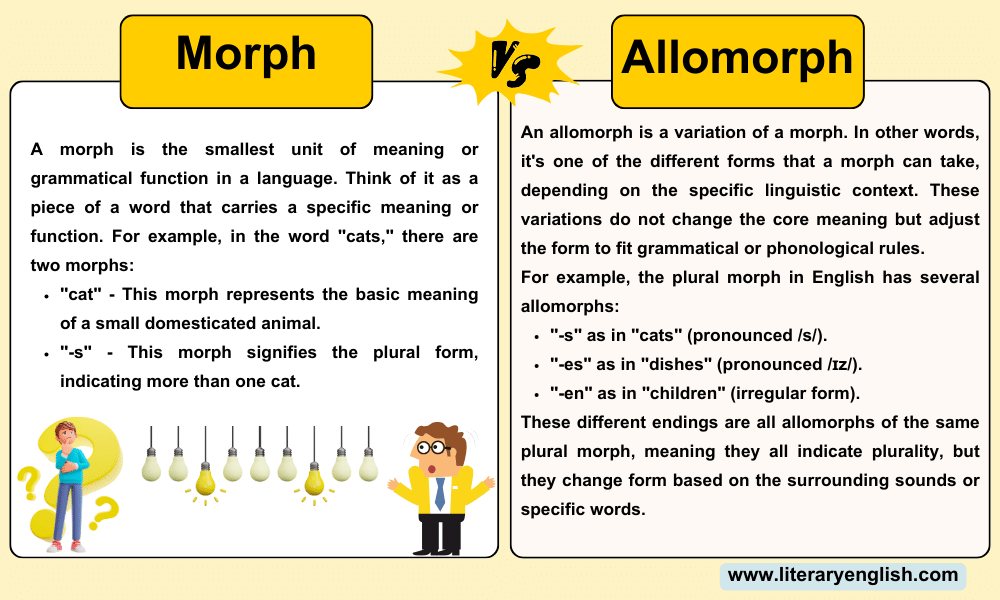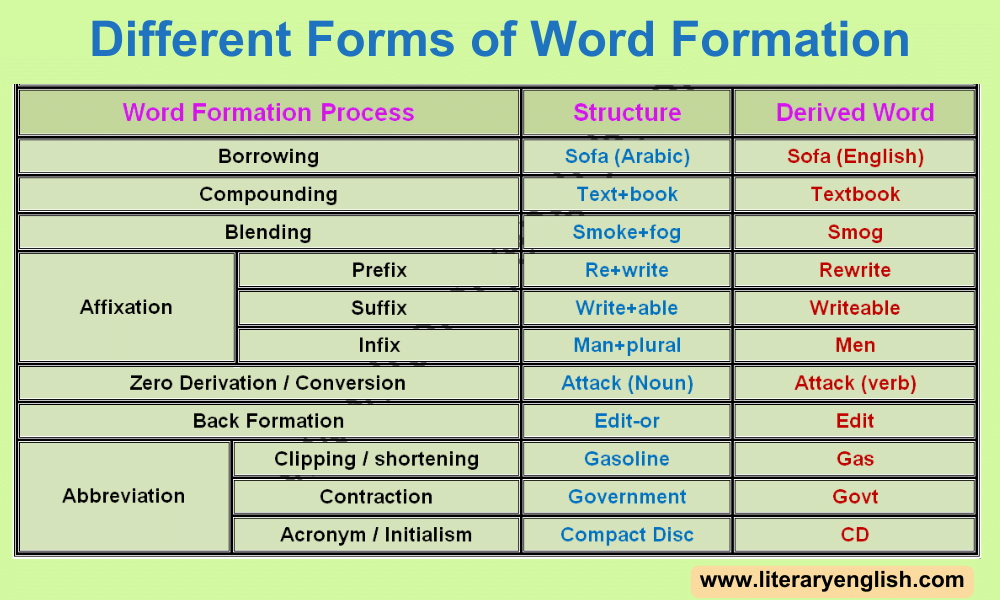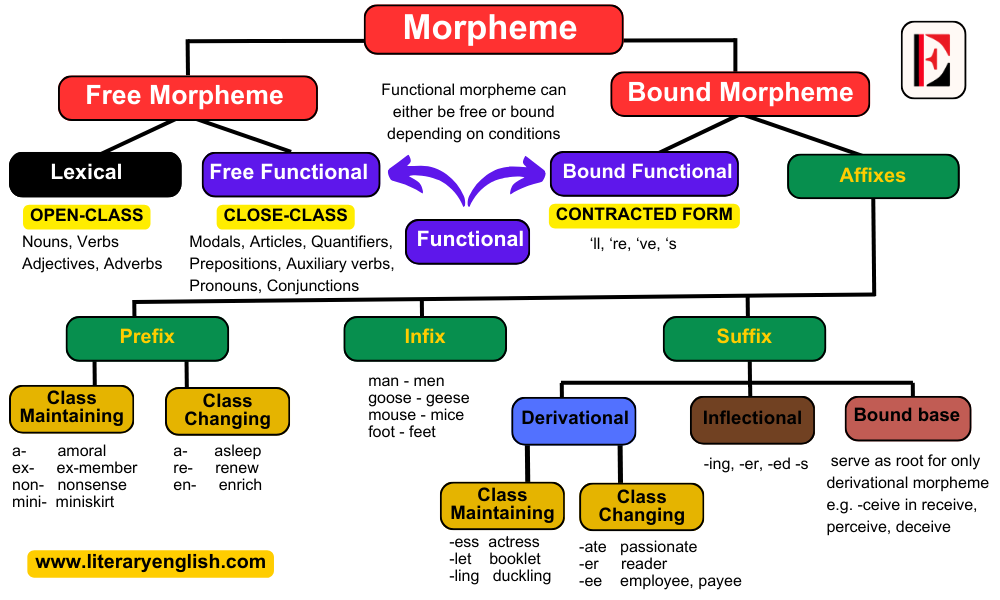Morphology is the branch of linguistics that deals with the structure and form of words. “Morph” and “allomorph” are the …
Morphology
What is Morphology in Linguistics?
What Is Morphology? Morphology, in linguistics, is the study of words construction. How new words are formed? What is their relationship …
What is a Morpheme in Morphology? Linguistics
A morpheme is the minimal grammatical unit within a language. A morpheme is different from a word because a morpheme …
Different Forms of Word Formation | Morphology
What is Word Formation? Word formation process is basically how new words are formed. In linguistics, word formation is the …
Types of Morphemes | Free vs. Bound Morpheme
What Is a Morpheme? A morpheme is the minimal grammatical unit within a language. Every word comprises one or more …




